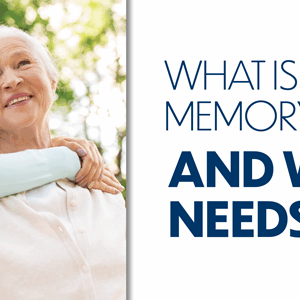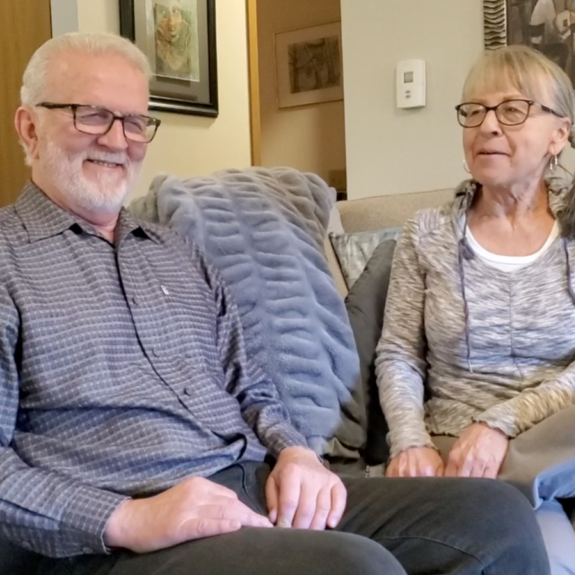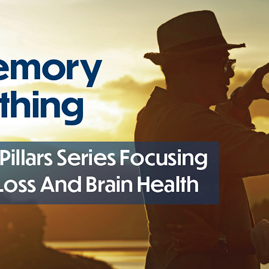What Can You Do If You Notice Cognitive Changes In A Loved One During The Holidays?

The holiday season is a cherished time for family gatherings and celebrations. It’s also an opportunity to connect and observe how our loved ones are doing—both physically and mentally. Sometimes, subtle changes in a family member’s cognitive health may become more noticeable during these reunions.
At Three Pillars Senior Living Communities, we understand how challenging it can be to recognize and address these changes. That’s why we offer free educational programs and resources to support families and individuals experiencing memory decline.
If you’ve noticed changes in your loved one’s cognition during the holidays, it’s
important to recognize that not all changes are cause for immediate concern, but they
can still provide valuable insight into their overall health. Here is a list of 5 signs of
cognitive decline.
Signs of Cognitive Decline
- Memory Lapses and Repetition.
While occasional forgetfulness—like misplacing keys or forgetting an event—can happen to
anyone, repeated instances of forgetting recent conversations or events may suggest a
more serious issue. During family gatherings, it may become more noticeable if a loved one
asks the same question multiple times or forgets details they would normally remember. - Difficulty Following Conversations.
Cognitive changes can make it harder for someone to follow along with conversations,
especially in social settings like family dinners. They may become confused, lose track of a
topic, or struggle to find words. This is often more apparent in busy or noisy environments. - Mood Swings or Personality Changes.
Changes in mood, such as increased irritability, anxiety, or withdrawal from social
interaction, can also be a sign of cognitive or emotional distress. For some, the holidays
bring added stress or feelings of isolation, but drastic shifts in behavior, especially if out of
character, may indicate a deeper concern. - Disorientation or Confusion.
During the holidays, the hustle and bustle can lead to a sense of disorientation or
confusion, especially in new environments or unfamiliar settings. If your loved
one seems lost in familiar places, forgets how to perform simple tasks, or
becomes unusually confused about time or people, these could be signs of
cognitive decline. - Changes in Hygiene or Self-Care.
A decline in personal care—such as neglecting hygiene, dressing
inappropriately for the weather, or forgetting to eat regularly—can be a
sign of cognitive impairment. During the holidays, changes in daily routine
might exacerbate these signs, but they shouldn’t be overlooked.
If you notice cognitive changes in a loved one during the holidays, the most important thing is to
approach the situation with compassion and patience. These changes could be linked to temporary
factors like stress or fatigue, but they may also be an early sign of something more serious.
What You Can Do?
Keep track
Record instances of memory lapses, confusion, or behavior changes for future
reference. This will be helpful if you need to share your observations with a
healthcare provider.
Encourage a visit to the doctor
If you’re concerned about cognitive changes, it’s important to encourage a visit to a
doctor for a proper assessment. Early intervention can help with managing
conditions that affect cognition.
Provide support
Offer emotional and practical support, and create a calm environment. The holidays
can be overwhelming, so making sure your loved one feels safe, included, and cared
for can help ease their stress.
Focus on routines
A sense of normalcy can help reduce confusion and anxiety. Maintaining familiar
routines as much as possible and engaging in things that bring comfort can provide
a sense of normalcy and control.
Noticing cognitive changes in a loved one can be difficult, especially during the
busy holiday season when the focus is often on togetherness and celebration. By
staying alert to signs of cognitive decline, and taking action early, you can help
ensure your loved one receives the support they need. Whether it’s seeking
professional advice or simply offering extra help and understanding, taking
proactive steps can make a meaningful difference in their well-being.
For more information on dementia-supporting initiatives across Three Pillars’ campus, and within the surrounding community, please contact Jen Graf, Senior Director of Dementia Programming, at jgraf@threepillars.org or 262.965.7133, or visit our Memory Care Initiatives page for additional resources.




